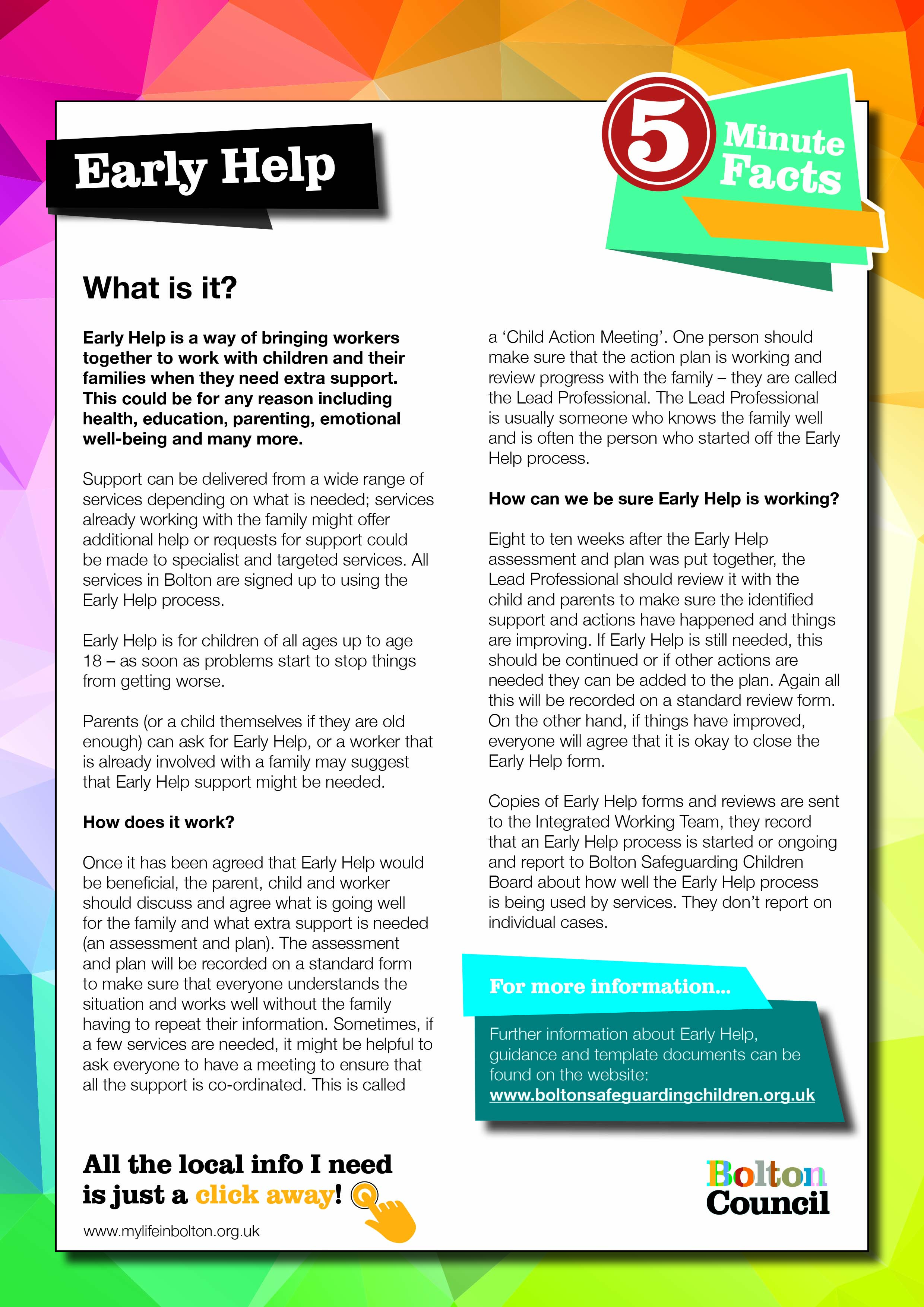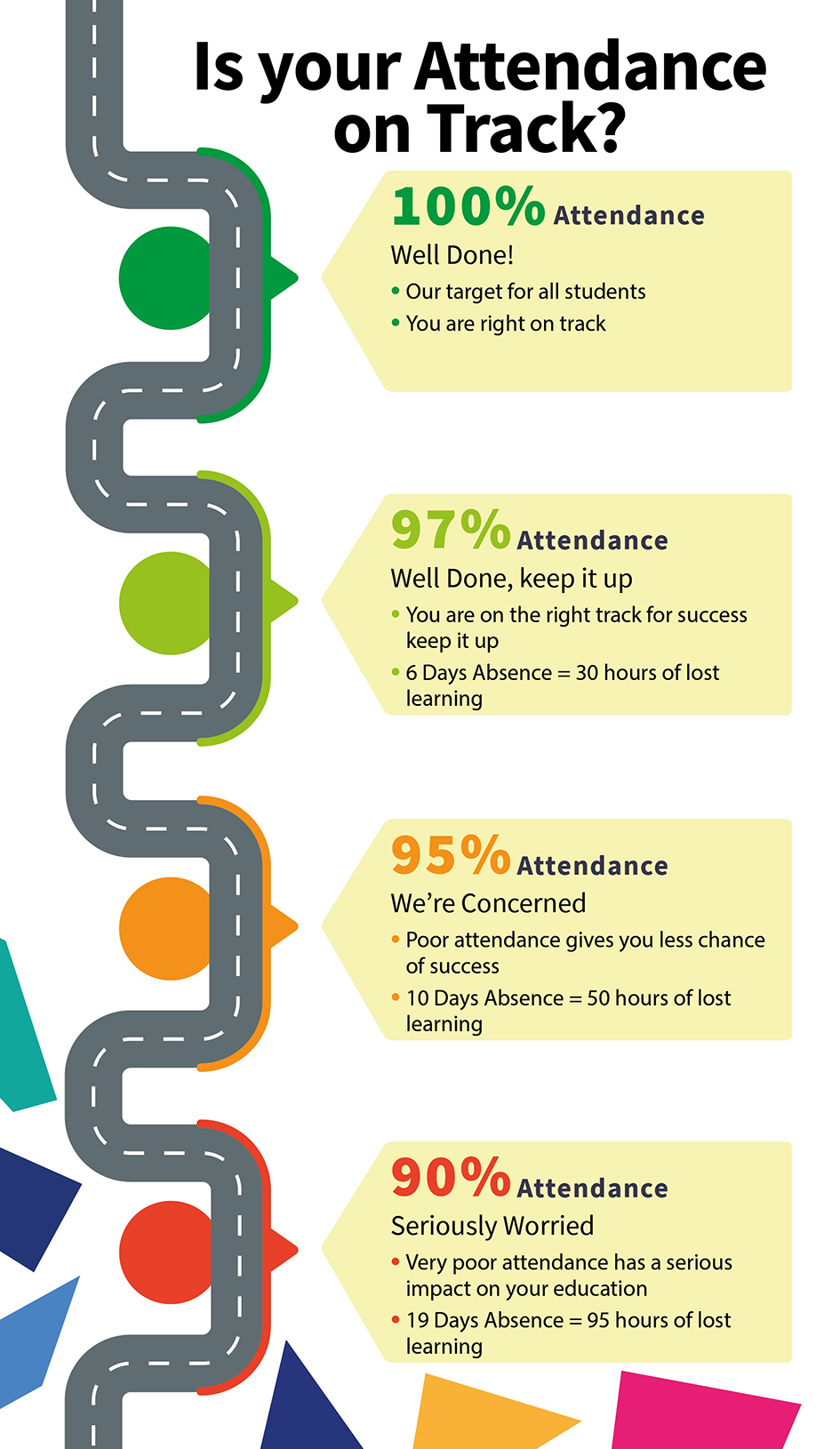Early Help Offer – What is the Early Help Offer at Westhoughton High School?
Westhoughton High School’s Early Help Offer identifies the need for help for children and families as soon as problems start to emerge, or when there is a strong likelihood that problems will emerge in the future.
The Early Help Offer recognises that problems can arise at any point throughout childhood and adolescence. The Early Help Offer includes universal and targeted services designed to reduce or prevent specific problems from escalating or becoming entrenched.
What does the Early Help offer mean for families?
We hope that our Early Help Offer will provide the ‘front door’ through which parents can access additional support at any level.
Westhoughton High School is committed to:
- Supporting young people and families, offering early help to avoid escalation of issues
- Ensuring a multi-disciplinary approach that brings a range of professional skills and expertise to bear
- Building positive relationships with students and their families, co-ordinating the support needed from other agencies
- Practice that empowers families and helps them to develop the capacity to resolve their own problems
- A holistic approach that addresses children’s needs in the wider family context
- A simple, streamlined referral and assessment processes – the ‘early help’ assessment
The intended benefits for young people and families are:
- Enhanced life chances as a result of the well documented benefits of Early Help in preventing issues later in life
- An all age integrated service providing continuous support across age groups and for the whole family
- Co-ordinated support resulting in maximised opportunities and outcomes for children, young people and families
- Information may be shared across agencies to ensure the right support is in place at the right time for families
What is early help assessment?
Early help means providing support as soon as a problem emerges, at any point in a child’s life. For this to be effective, all agencies are required to work together to:
- Identify children and families who would benefit from support early
- Undertake an assessment of need
- Provide services to address those needs
All workers are responsible for using standard ways of working with families to identify the right support that can be delivered quickly to prevent things from getting worse. They have a responsibility to share information, work together and co-ordinate action plans.
This might mean when a child:
- Is disabled and has specific additional needs
- Has special educational needs
- Is a young carer
For more information on the early help assessment go to: http://boltonsafeguardingchildren.org.uk/
School based Integrated Working Officer
At Westhoughton High School we believe that integrated working better supports children, young people and their families. Sometimes your child and family need advice or support from a number of different people and organisations. Perhaps you need support from a health visitor or GP, a teacher or Student Progress Leader, a housing officer and a community worker. Integrated working means that even if you have different workers from different organisations, all your workers will work together as one team to give your family the support you need. Integrated working helps to give a voice to the child and family and means that all the people working with you will involve you in the decisions made about what support they should give you. To help the different people working with you to work in this new way, an early help assessment may be necessary.
Our school based Integrated Working Officer is Debbie Arstall. Debbie can offer advice and support on matters of attendance and welfare. She knows the community well and can often provide parents with the links they need to access support.
You can contact Debbie on 01942 814122.
Early Intervention Team (Attendance Advice)
It is essential that your child makes a positive and consistent start to school life. To enable this to happen, regular attendance is required. If your child is experiencing difficulties with his/her attendance it may be helpful to contact your child’s Student Support Leader or Alison Foster, our Attendance Intervention & Support Officer, at the earliest opportunity so that we can offer you support.
Additionally, the Early Intervention Team offers parents support around attendance issues. The primary role of this service is to provide advice, information and support to schools, children and families to raise levels of attendance. This team is located at: The Base, Marsden Road, Bolton BL2 2JW and can be reached on 01204 338173. For more information visit their website: School attendance – Bolton Council
Please read our ‘What is good attendance’ booklet for useful information.
Student Support Team – Student Welfare Issues
Alongside our motivated teaching staff, the Student Support Team are skilled and experienced professionals who provide a quality service for your children. Five non-teaching Student Support Leaders (SSLs) work hard to support young people and their families. If you or your child needs someone to talk to or you need support with particular difficulties, they can be contacted at the school. SSL’s can help with a range of things, including problems with coming to school, friendship issues and issues around confidence. SSL’s are also there to help our parents and give support with parenting issues; remember, from time to time we all experience difficulties. Having someone to listen and offer support can be of great help.
Your child’s SSL is:
- Year 7 – Mr Shaw – Y7pastoralteam@westhoughton-high.org
- Year 8 – Mrs Aaron – Y8pastoralteam@westhoughton-high.org
- Year 9 – Miss Swift – Y9pastoralteam@westhoughton-high.org
- Year 10 – Mrs Whittle-Darrock – Y10pastoralteam@westhoughton-high.org
- Year 11 – Ms Walsh – Y11pastoralteam@westhoughton-high.org
Contact SSLs on 01942 814122.
Student Progress Team
As part of the support team for your child’s year group there is a Student Progress lead (SPL). They are part of the teaching team but also work alongside the SSL. The SPL oversee the educational and academic progress of each and every student using a variety of tracking, target setting and monitoring tools. This helps to ensure all students are focused on achieving the best of which they are capable, working to remove any obstacles to learning.
Your child’s SPL is:
- Year 7 – Miss Hill – Y7pastoralteam@westhoughton-high.org
- Year 8 – Mr Hancock – Y8pastoralteam@westhoughton-high.org
- Year 9 – Mrs Wharton – Y9pastoralteam@westhoughton-high.org
- Year 10 – Mrs Stocks/Mrs Wild – Y10pastoralteam@westhoughton-high.org
- Year 11 – Mr Barwise – Y11pastoralteam@westhoughton-high.org
Contact SPLs on 01942 814122.
In addition, a team of Form Tutors who mentor students to ensure they make appropriate progress, and also celebrate student achievement. Tutors meet with their form group for twenty minutes each day in addition to registration time. Each tutor looks after the pastoral welfare and attendance of the students in their form group and holds assertive mentoring meetings with every student to discuss their academic progress and set targets to improve achievement.
Online Safety
If you are concerned about e-safety or your child staying safe on line, please follow the information link http://parentinfo.org/page/
Please also see link to sign up to National Online Safety page full of useful information: https://nationalonlinesafety.com/enrol/westhoughton-high-school
Please visit our Internet Safety page for further information.
Parent Partnership
Bolton Information and Advisory Service provides support and advice to parents whose children have special educational needs. They provide accurate and neutral information on the full range of options available to parents.
School Nursing Team – Health Issues
School nurses promote and maintain the good health of all school age children and enable them to reach their full potential. The school nurse works in partnership with parents, children and young people, school staff and other professionals. The School Nursing team can offer advice and support on a range of issues and has links to other services that work with children and families. Our school nurse is Alison Clarke. You can contact Alison on 01204 463307.
Runa Project (missing from home)
RUNA (pronounced “runner”) works with children and young people who have been reported missing from home. RUNA works in partnership with Greater Manchester Police, Bolton Council and school.
The RUNA project provides contact with every child who is reported missing to the Police in Bolton. The project workers meet with children and young people once they have returned home. They discuss the dangers and address the problems which cause them to run away. RUNA liaises with other organisations that can support both the individual and family in order to prevent future running away. The project has preventative work programmes which operate in school.
Contact RUNA on: 01204 385848 or see their website: RUNA – Urban Outreach
Behaviour Support Service – Advice on Positive Parenting Approaches
Bolton Behaviour Support Service provides a team of specialised behaviour workers who work with young people in schools. The school allocates students as appropriate to their need. The service also offers advice on aspects of positive parenting. Please contact: Miss R Beattie at school on 01942 814122.
Phoenix EXIT Team (Children at Risk of Exploitation)
Child Sexual Exploitation is the sexual abuse of children and young people by adults in order to obtain sexual acts. It can happen to both girls and boys of any age and from any background. It can take the form of informal exchanges of sex for favours, money, drugs, accommodation or other commodities; more ‘formal’ forms of exploitation involving groups of organised abuse and trafficking.
Exploitation commonly happens when children and young people are ‘groomed’ and manipulated by adults in order to gain trust and make young people feel they are safe and loved. Child sexual exploitation can happen in different ways. It can involve an older adult exerting financial, emotional or physical control over a young person to involve them in sexual activity. It can involve other young people manipulating or forcing other children into sexual activity with adults. Exploitation can also involve opportunistic or organised networks of perpetrators who may profit financially from trafficking young victims between different locations to engage in sexual activity with multiple men.
Technology is widely used by perpetrators as a method of grooming and coercing victims, often through social networking sites, such as Facebook, Snapchat, Instagram, BBM (Blackberry Messenger) and mobile devices.
If you are worried that a child or young person you know may be being sexually exploited you should speak to PHOENIX EXIT, Bolton’s Child Sexual Exploitation Team for advice on 01204 337195 or email Phoenix.ExitTeam@gmp.pnn.police.uk or contact Debbie Arstall at school for more information on 01942 814122.
Operation Encompass
 Westhoughton High School is part of what is known as Operation Encompass; This means that the Police routinely inform us of any domestic incidents so that we can best support our young people in school the following day as appropriate.
Westhoughton High School is part of what is known as Operation Encompass; This means that the Police routinely inform us of any domestic incidents so that we can best support our young people in school the following day as appropriate.



